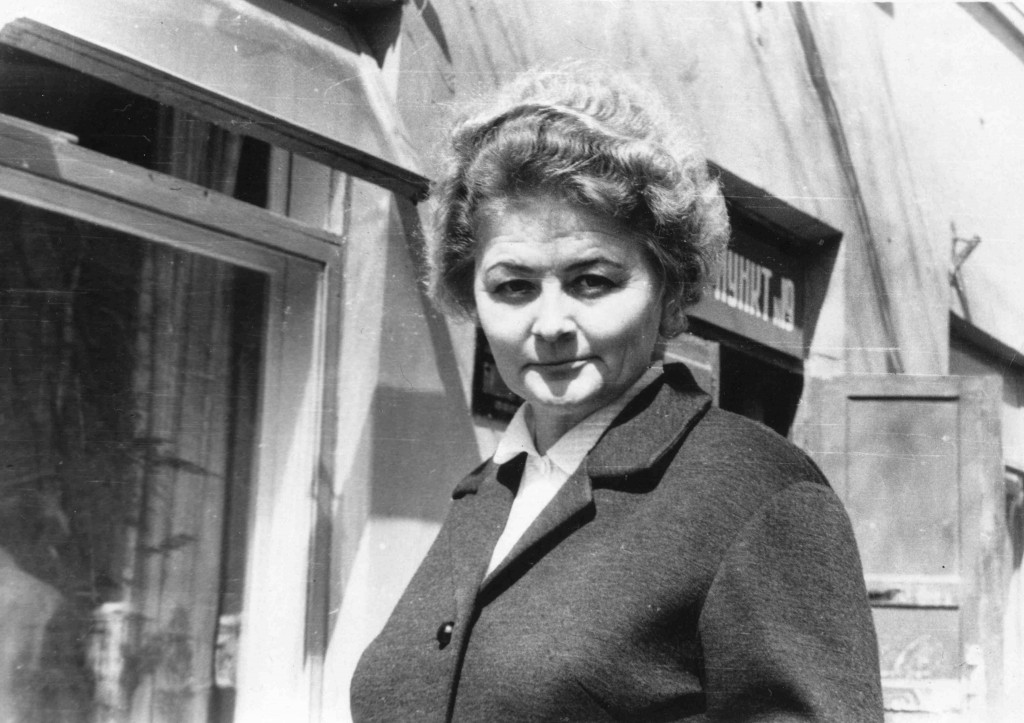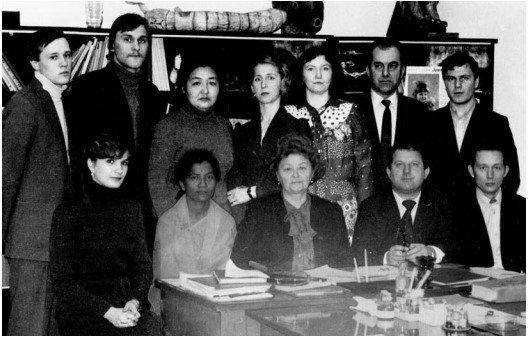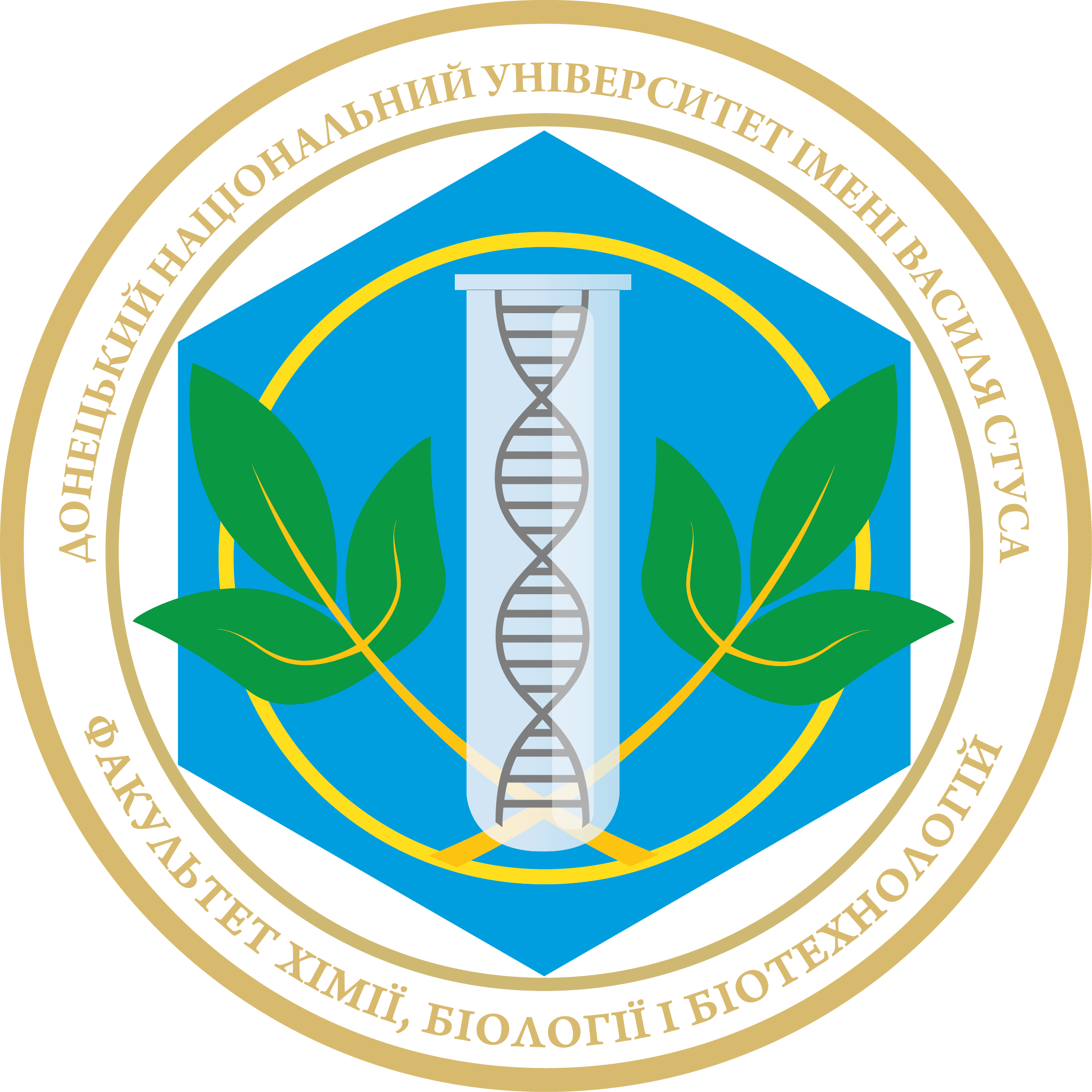History of the department
The Department of Biophysics was founded at the Faculty of Biology of Donetsk State University in 1995 on the basis of the Department of Artificial Intelligence (headed by Doctor of Technical Sciences, Professor Shevchenko A.).
During the 20 years of its existence, the department has trained more than 500 specialists in the field of biophysics and medical biophysics.
Since 2014, a new stage of development of the department in Vinnytsia has begun. New specialists have joined the scientific – teaching staff of the department. The department has new scientific areas: systems biology, electrophysiology and biology of aging, according to which new courses have been developed.
Due to the fact that the department conducts research and teaches courses in human physiology, from 2019 the department became known as the Department of Biophysics and Physiology.
On July 1, 2020, the Department of Biophysics and Physiology merged with the Department of Zoology.
The Department of Zoology was established in 1965. Its founder and first head was Doctor of Biological Sciences, Professor Zinaida Usova, who made a great contribution to the formation of the Department of Zoology and the Faculty of Biology as a whole. In 1968, a postgraduate course was opened under it. The first graduate students were A. Riazantseva, V. Skliar, O. Panchenko, M. Yaroshenko. Three of her students defended their doctoral theses. The scientific topic of the department concerned a number of groups of invertebrates and mouse rodents of Donetsk Oblast. Already in the city of Vinnytsia after 2014 the staff of the department was supplemented by Doctor of Agricultural Sciences, Professor Pavlo Bihun, Candidate of Veterinary Medicine Berezovskyi Ihor, Candidate of Agricultural Sciences Valentyna Panko and Ph.D. in Biology Kavun Eduard , who is currently acting Head of the Department. Today the scientific interests of the department are developing in several new directions: entomofauna and ornithology of Vinnytsia region, study of species composition and state of aquatic ecosystems, physiological bases of sensory systems, analysis of resistance of natural and artificial ecosystems to anthropogenic loading.
The Department of Zoology was established in 1965. The organizer and the first head of the department was Doctor of Biological Sciences, Professor Zinaida Usova.
At that time the department was formed in the following composition: Head of the department, Professor Usova Z., Senior Lecturer Zaitseva L., Senior Lecturer Kuhtina A., Associate Professor Kara Y., Senior Lecturer, Associate Professor Kharchenko V., Head of the laboratory, assistant – senior lecturer Panchenko A., senior teacher Khodakov V., Head of the laboratory – assistant Frolkov V. The department trained highly qualified specialists in the field of Botany and Zoology at the full-time and part-time forms of education.
Z. Usova made a great contribution to the development of the Department of Zoology and the Faculty of Biology as a whole. She headed the department from 1965 to 1982, and was also the dean of the biological faculty from 1966 to 1971. It created a scientific school for the study of blood-sucking insects and mites. Her main scientific works were devoted to the study of fauna, systematics and ecology of blood-sucking midges of Ukraine. Under her leadership, expeditions were organized and conducted to collect faunistic material in the Black, White, Barents and Japanese Seas, the Far East, and Buryatia.
Since 1968, a postgraduate course has been opened at the department under the direction of prof. Usova Z. Her first graduate students were A. Riazantseva, V. Skliar, O. Panchenko, M. Yaroshenko.
During the work of Usova Z. more than 300 master’s and master’s theses were prepared; 23 PhD Theses. Three of her students defended their doctoral theses, this is M. Yaroshenko, V. Kaplych, E. Sukhomlyn.
The scientific topic of the department was the study of a number of groups of invertebrates. One of the first graduate students of Professor Z. Usova was a Doctor of Biological Sciences, Mykola Yaroshenko. His scientific interests were in the field of soil zoology – the study of mites-oribatids and other soil microarthropods. Thanks to his work at the Department of Zoology, a scientific school was also founded.
From 1968, Alfred Panchenko began to study the fauna of the simulant of Ukraine and led the research team from 1968 to 1976. He was in the first graduation of the Department of Zoology of Donetsk State University. Subsequently, in 1970, he became the head of the laboratory.

Doctor of Biological Sciences, Professor Zinaida Usova.

In the photo: E.B. Sukhomlin with students, 1983. From left to right, top row: V.M. Kaplich, A.P. Zinchenko, N.D. Bazarova, В.А. Bully, T.L. Savustyanenko, A.B. Panchenko, А.М. Makarenko; bottom row: E.B. Sukhomlin, M. Masti, Z.V. Usova, M.M. Yaroshenko, R.D. Semushina.
Sklyar V.E., who until 1975 worked at the department as an assistant, studied ectoparasites of murine rodents in the Donetsk region.
From 1969 to 1976 the group of geneticists composed of associate professors Sokolova I., Nenasheva H., Senior lecturer Petrova A. and head of Plotnikov Laboratory, who later moved to the Department of Botany.
The traditions of the study of blood-sucking insects of important medical and veterinary importance were continued by the students of Z. Usova. After graduation and defending her Ph.D. thesis, Alla Riazantseva, a member of the Ukrainian Entomological Society and Society of Parasitologists of Ukraine, worked for a long time at the department. Alla Riazantseva worked on the study of fauna, seasonal dynamics, biology of blood-sucking mosquitoes, was engaged in the protection of rare and endangered insects of Donbass. A. Ryazantseva developed an original method for identifying mosquito species of epidemiological significance. As a talented and erudite teacher she also worked abroad (Cuba).
The topic of the scientific works of the teachers of the department has traditionally been related not only to the territory of southeastern Ukraine. O. Panchenko studied the fauna and ecology of the Transcarpathian midges.
Due to the successful study of midges, the School of Simulidologists in Donetsk has gained recognition and popularity both in the former USSR and far abroad. Postgraduate students from the Far East, Uzbekistan, Turkmenistan, Azerbaijan, Belarus have been seconded to train specialists in the Department of Zoology. He directed his graduate students and the Institute of Zoology I. Schmalhausen in Kyiv and Moscow Pedagogical Institute. Specialists of the department’s simulologists have described 10 new species for science.
Due to the occupation of Donetsk, the Faculty of Biology moves to Vinnytsia. Much organizational work on the reproduction of the department is carried out by Ovchynnykova Yuliia, who from October 2016 to August 2019 fulfilled the duties of the Dean of the Faculty of Biology. Circle of scientific interests Y. Ovchynnykova is traditional for the department – environmental research and study of soil entomofauna.
In Vinnytsia, the staff of the department was supplemented by Doctor of Engineering Sciences, Professor Bihun Pavlo, Ph.D. Berezovskyi Ihor, Ph.D. Panko Valentyna and Ph.D. Kavun Eduard, who is now acting Head of Department.
Since April 2019, Algimantas Paulauskas has been working at the department with a doctor of biological sciences, professor in the department of zoology.
Since September 2019, the Department of Zoology and Ecology has been renamed the Department of Zoology.
On September 1, 2019 Vasyl’ Stus Educational and Scientific Institute of Chemistry of DonNU and the Biology Faculty were reorganized through their merger and formation of the Faculty of Chemistry, Biology and Biotechnology.
Scientific work of the Department of Zoology is performed in the following areas: entomofauna and ornithology of Vinnytsia region, parasitology, study of species composition and state of aquatic ecosystems, physiological bases of sensory systems, as well as analysis of the stability of natural and artificial ecosystems to anthropogenic loading.
Now the main tasks of the department are:
– providing quality educational services in accordance with educational standards and norms that meet the requirements for the content of higher education and the formation of accessible learning conditions for each student;
– implementation of effective educational activities and modernization of the educational process in order to increase the professional competence of graduates of hogher educational institutions;
– the formation of a qualitative structure of personnel support of the department, ensuring the high quality of teaching of educational disciplines by the teachers of the department;
– providing innovative (educational and research activity) development of the department;
– formation at the department of the scientific school and ensuring its recognition in the scientific community, involvement of higher education applicants in research work;
– formation of effective forms of partnership with both domestic and foreign educational institutions.
– use of the results of research work in the educational process;
– establishing scientific links at regional, national and international levels;
– increased competition in the market of educational services by improving the quality of training of specialists in accordance with the requirements of the labor market,
use of modern forms and methods of career guidance, including through the Internet, to attract potential entrants to study programs that are implemented by the department and faculty.

